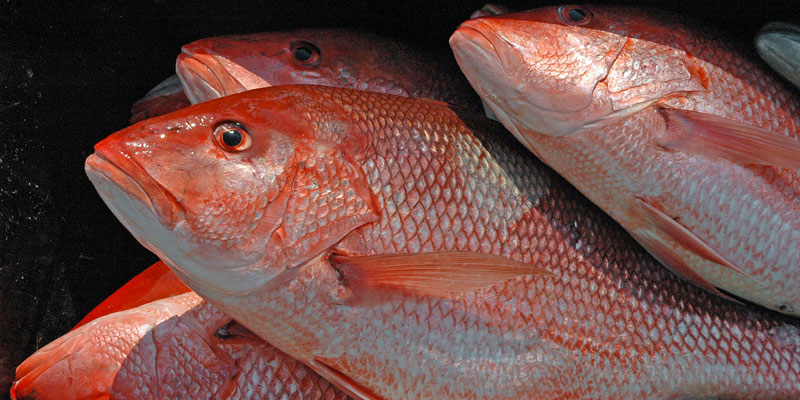To reel in red snapper poachers, U.S. Sens. Tommy Tuberville and Katie Britt (R-Montgomery) joined Sen. Ted Cruz (R-Texas) in introducing legislation to target illegally caught red snapper.
The Illegal Red Snapper Enforcement Act would require the National Institute of Standards and Technology and the National Oceanic and Atmospheric Administration to develop a standard methodology for identifying the country of origin of red snapper imported into the United States.
Snapper poaching continues to be an issue across the Gulf of Mexico, Tuberville (R-Auburn) said in a news release, as Mexican fisherman illegally catch red snapper, smuggle it into their country, and then confuse American consumers by selling the fish to them.
Technology exists to chemically test and find the geographic origin of many foods, but not for red snapper. The legislation would develop a field test kit the Coast Guard could use to accurately ascertain whether fish were caught in Mexico or U.S. waters, thus allowing federal and state law enforcement officers to identify the origin of the fish and confiscate illegally caught red snapper before it is imported back into the U.S.
“Alabama lands 34% of all recreationally caught Red Snapper in the Gulf,” said Tuberville. “Unfortunately, our domestic Red Snapper industry is being undermined by Mexican fishermen who are illegally catching these fish in the Gulf, smuggling them into Mexico, and then reselling the same fish back to Americans. In addition to taking business away from Alabama fisherman, many of the profits from these illegal fishing operations are funding the cartels.
“I’m proud to join Senator Cruz in introducing the Illegal Red Snapper Enforcement Act to stop illegal Red Snapper from flooding our markets and bankrupting our great fishermen.”
Mexican fishermen cross the maritime border between Texas and Mexico on small boats called “lanchas” to illegally catch red snapper in U.S. waters and return to Mexico, the news release said. The fish are sold in Mexico or mixed in with legally caught red snapper then exported back into the United States across land borders.
Red snapper is one of the most well-managed and profitable fish in the Gulf of Mexico, but illegal fishing by Mexican lanchas puts law-abiding U.S. fishermen and seafood producers at a competitive disadvantage, the news release said. Illegal, Unreported, and Unregulated fishing activities violate both national and international fishing regulations.
Cartels engaged in drug smuggling and human trafficking also engage in the profitable illegal fishing of red snapper. The same fishing boats and fishermen who catch red snapper also smuggle drugs and humans for the cartels, and these profits support the organization.
With the help of machine learning, NIST scientists are able to chemically determine the geographic origin of foods, including strawberries, apples, cherries, ginseng, ginkgo, beef, honey, and rice.
Using those same methodologies, these scientists believe it would be possible to determine the geographic origin of red snapper. This would allow law enforcement to have a better understanding of the networks that support illegal fishing.
It would also reduce the financial incentives for the crime, since the fish could no longer be sold back into the United States. If successful, this method could be expanded to identify other IUU fish.













